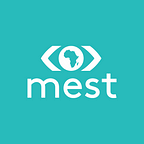Bridging the Gap Between Academia and Industry
This post was written by MEST Marketing Associate, Anjola Okunade.
According to this article by LinkedIn, the largest professional network in the world, the top soft skills needed to be employed in 2019 and onwards include Collaboration, Persuasion, and Adaptation; with hard skills like Cloud Computing, Artificial Intelligence, UX Design, Mobile Application Development. Especially on the African continent, there seems to be a disconnect between what universities teach and the skills needed in the market, leaving several graduates of universities and other tertiary institutions unemployed; in fact, this study by the British Council estimates Nigeria’s graduate unemployment at 23.1%. Bridging this gap was one of the topics discussed at the just concluded Tech In Ghana Conference. For 2 days, tech experts, enthusiasts, consumers, founders, investors, policymakers and other stakeholders held conversations, pitches, and showcases on the present state and future of Technology in Ghana, and by extension, Africa.
MEST Training Program Director Femi Adewumi was a speaker on the bridging the Gap Between Academia and Industry panel where he was joined by Gordon Adomdza, Associate professor at Ashesi University, Edmund Owusu Agyapong, Statistics Officer, Ghana Education Service, Lexy Owusu-Boahene, Managing Director, LXHR Solutions. The session was moderated by Cecil Nutakor of eCampus who opened the session by stating the reason for the gap as the difference in cultures between academia and industry. “Industry is more result-oriented and driven, while academia focuses on publications and theoretical knowledge,” he said. In this article, HR expert Patricia Abena Kissi also asserted that the relatively static nature of the educational curriculum and the dynamic nature of the business world or the world of work also accounts for the gap that exists between industry and academia.
The conversation soon moved to finding a way to merge academia and industry seamlessly to achieve results. Positing that academia in our region hasn’t evolved or moved with the times, Adewumi then urged the policymakers to design curriculums that equip students with digital skills necessary for employment in the 21st century. This point was corroborated by Adomdza who stressed that a program approach to entrepreneurship is possible, despite the student size of a “big” university. “Size definitely comes to play in our classroom model at Ashesi, but it doesn’t mean that there aren’t creative ways to impart entrepreneurship (and other relevant skills) in a larger class”. As a policymaker, Agyapong then went to say that previously, courses only existed to eradicate ignorance without really imparting new knowledge, but that going forward, the curriculums designed will be less rigid. “There is now flexibility in the curriculum development and the interests of students are being considered. The latest GES curriculum has all these indices in place, and they will be measured to track progress” he said.
When asked about the curriculum design model at MEST Africa, Adewumi revealed that it’s an outcome-based model. “At MEST, our goal is to build world-class entrepreneurs and we design our curriculum in a way that encourages such. We focus on technology, business, and communication, blending all three together to deliver the most relevant knowledge; and we are quick to go back to the drawing board to upgrade our courses as often as is needed.” Owusu-Boahene added that Continuous Professional Development even after getting a tertiary education must be promoted, as well as more industry leaders offering Graduate Trainee Programs. “We need to strengthen our career guidance services in local institutions, and train the guidance providers too,” she said.
In rounding off, Adomdza stated that academia will always lag behind industry, therefore academia should be quick to respond to what the industry demands.”Academia already offers training in the fundamentals needed to succeed, so all that is needed to do is track Industry and build on the existing curriculum to match their pace.” A member of the audience Miss Ama stressed that partnerships work both ways so both academia and industry should embrace partnering without neglecting the community.
Adewumi ended the conversation by highlighting the merits of MEST as a bridge between academia and industry. “MEST is a world-class graduate-level program that provides the students who we refer to as Entrepreneurs-In-Training with the chance to learn and try out their knowledge immediately.”
And there you have it! Are you ready to experience the best of both worlds? Apply to be part of the #MESTclassof2021 today via this link.
